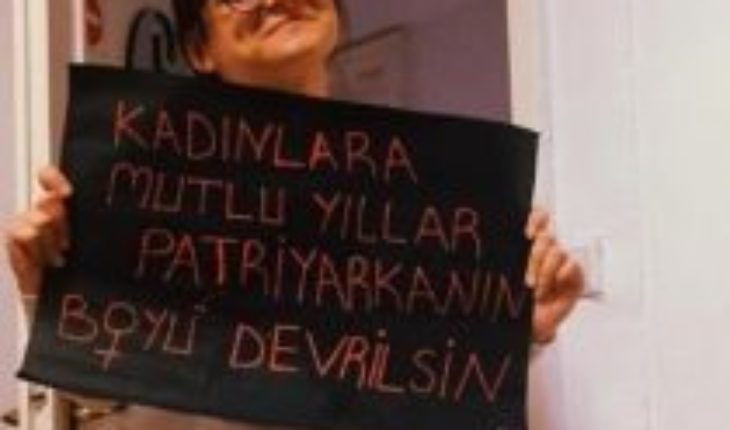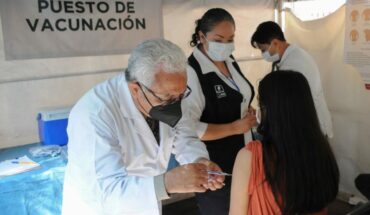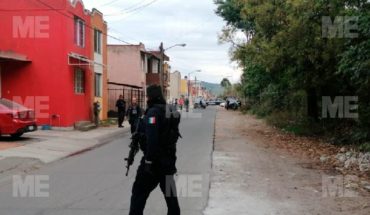
“Patriarchy is a judge / judge dying us unborn, / and our punishment / is the violence you don’t see” is how the famous performance of Lastesis begins. And Leyla Mavili is a Turkish student activist who protests against this violence, which was long ignored. “We mean, ‘No more,'” he explains to DW Leyla Mavili.
When the performance “A Rapist in Your Path” spread around the world, Leyla and her friends wanted to represent her in her faculty. “Lastesis expressed in a very powerful way the problems that women have in every corner of the planet. We feel very identified with performance, and we wanted to be a part of it,” says Leyla.
Police repress women in Istanbul during the International Women’s Day march. (8.03.2020).
Punished for bravery
But not only were they unable to perform the dance because of the mass intervention of dozens of police, but she and her friends were held by law enforcement. Then, state institutions began to make it impossible for him to carry out his studies by taking away his scholarship and his place of public residence for students. “But I don’t regret anything,” Leyla says.
When we contacted her for this interview, she asked us to speak to her later because she was about to go to the pre-8M women’s march in Ankara. When we were finally able to connect with her, Leyla told us what she experienced: “First I got kicked out of public student residence. A month later, I had my scholarship cut off,” recalling that all this was simply because I wanted to perform peacefully. “The state punishes in a ridiculous way men who kill and rape women. They reduce the convictions of rapists for good behavior. I was punished by taking away my resources simply because I raise my voice against gender-based violence. It is a very clear example that shows which side the state is on.”
At right, Leyla, sitting with her friends from her university women’s collective in Ankara.
Women’s solidarity
“I was very afraid in principle,” Leyla confesses. The Turkish economy has been in a serious crisis for some years, and his family is also affected. That’s why it’s impossible for her to ask for more financial help. Leyla relied on public scholarships to continue studying. “But the friends of our women’s collective have helped me a lot. And that gives me a lot of strength. Many friends welcomed me into their homes when I was kicked out of the residence. They didn’t let me spend a lyre,” Leyla says.
“Some women in the feminist movement raised money and started paying me a monthly fee. Thanks to the solidarity of these women, I can continue to study. If it wasn’t for that, I probably would have had to drop out of school, and go back to my family’s house, which is in another city,” he says, adding that in those conditions it would be very difficult to find a job that would allow him to continue studying. In Turkey, the youth unemployment rate (15 – 24 years) reached historic levels, at 27.4%. And young people who find work must have longer than usual days. For this reason, among others, it is not common in that country to work while studying at the university. “Solidarity between women prevented me from falling into hopelessness and poverty,” Leyla explains.
Turkish women celebrating the International Women’s Day march on March 8, 2020.
“I am very grateful to Lastesis for creating this powerful performance. If I had the possibility of going to Chile, I would have loved to tell you that, together with them, I am growing resistance against patriarchy. The fact that they kicked me out, cut off my scholarship, and started an investigation against me, can’t stop me,” he concluded decisively.





